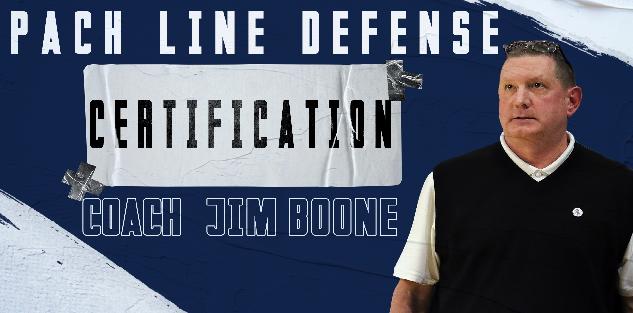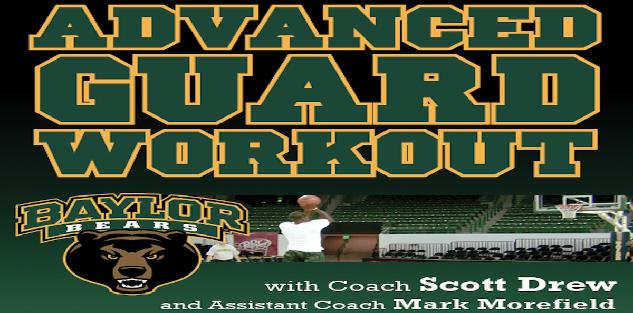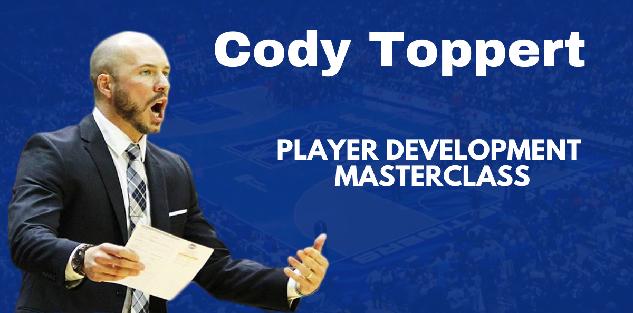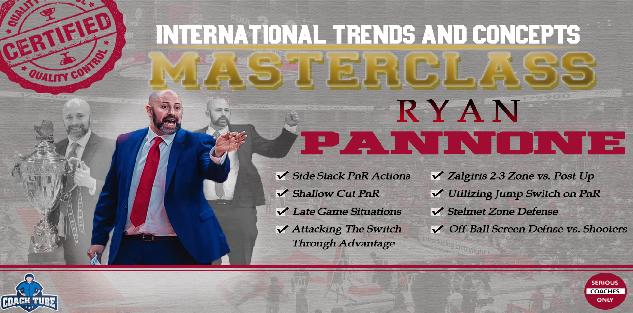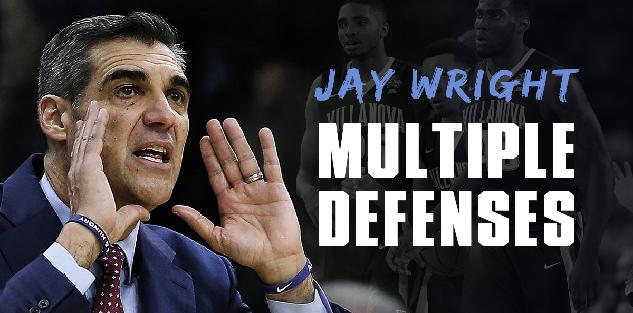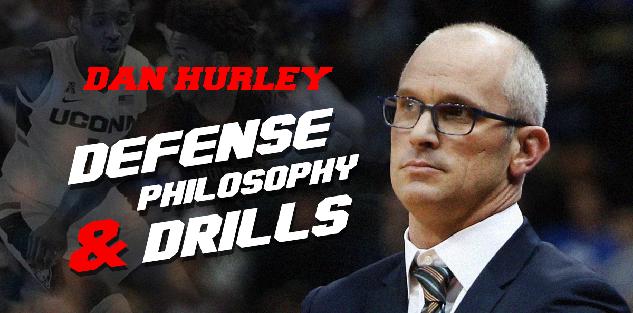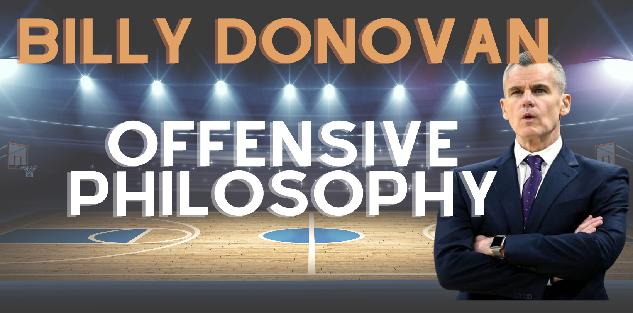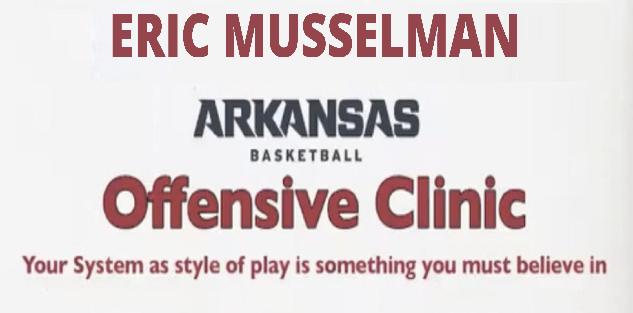Featured courses
- Two Great Game Situational Workouts For the Basketball Offseason by Grant Young
- Two Reads Basketball Players Must Understand Before Executing the Ball-Screen by Grant Young
- Two of LSU Coach Kim Mulkey’s Game-Winning Inbounds Plays by Grant Young
- Three Effective Early-Season Defensive Basketball Drills by Grant Young
- Four Essential Tips For Basketball’s 1-3-1 Zone Defense by Grant Young
- Four Zone Defense Drills to Strengthen Your Team by Grant Young
- How to Beat the Three Most Common Pick and Roll Coverages by Grant Young
- Two Drills to Improve Shooting at the Start of the Basketball Season by Grant Young
- Core Basketball Principles That Dallas Mavericks Coach Sean Sweeney Teaches by Grant Young
- Three Competitive Shooting Drills For Your Basketball Team by Grant Young
- How To Teach The ‘I’ Generation of Basketball Players by Grant Young
- Three Elite Drills to Begin a Basketball Practice With by Grant Young
- How to Build a Championship-Winning Basketball Team Culture by Grant Young
- Two of Texas Women’s Basketball Coach Vic Schaefer’s Tips For Team Culture by Grant Young
- Atlanta Dream WNBA Coach Brandi Poole’s Four Sets for Secondary Offense by Grant Young
- NC State Basketball Coach Brett Nelson’s 4 Crucial Point Guard Qualities by Grant Young
- Kentucky Coach Mark Pope’s Five Guard Rules For Offense by Grant Young
- McNeese State Basketball Coach Will Wade’s 4 Core Pillars by Grant Young
- 4 Tips To Instantly Improve Your Free Throw Shooting by Tyler Linderman
- Assemble a Championship-Caliber Basketball Rotation by Brandon Ogle
- Two of UConn Coach Dan Hurley’s Key Defensive Drills by Grant Young
- Four Post Moves All Basketball Forwards Should Have In Their Bag by Grant Young
- Four of Baylor Coach Nicki Collen’s Midseason Pick and Roll Adjustments by Grant Young
- WNBA Legend Sue Bird’s Two Tips For Attacking on Offense by Grant Young
- Houston Coach Kelvin Sampson’s Three Keys for Building a Basketball Program by Grant Young
- Two of Tom Izzo’s Top Michigan State Defensive Drills by Grant Young
- Four of Olympic Gold Medalist Coach Mechelle Freeman’s Relay Race Strategies by Grant Young
- Three Key Strategies Will Wade Uses to Build a Dominant Team by William Markey
- Five UConn Huskies Men’s Basketball Plays That You Can Use by Grant Young
- Three Tips for Maintaining Team Culture at the End of a Basketball Season by Grant Young
- Three Dribble Drive Motion Drills to Teach Your Basketball Team by Grant Young
- Three Dribbling Drills For Non-Primary Ball Handlers by Grant Young
- Four Advanced Ball Handling Drills For Basketball Guards by Grant Young
- Three Tips to Sharpen Your Post Player’s Footwork in Basketball by Grant Young
- These Three Pick and Roll Drills Are Crucial For Any Ball Screen Offense by Grant Young
- Three Closeout Drills to Improve Basketball Shooting Defense by Grant Young
- Three Tips to Perfect the Packline Defense in Basketball by Grant Young
- Four Keys to Executing the Read and React Offense in Basketball by Grant Young
- Three Tips to Develop Elite Basketball Shooters by Grant Young
- Three Crucial Keys to Executing the 5 Out Offense in Basketball by Grant Young
- These Three Offensive Sets Will Help You Beat Any Zone Defense by Grant Young
- Three Transition Basketball Drills To Play With More Pace by Grant Young
- Three 5 Out Offense Drills Any Basketball Coach Can Use by Grant Young
- Four Vital Techniques for a Motion Offense in Basketball by Grant Young
- Three Baseline Inbounds Plays To Win Your Basketball Team Games by Grant Young
- Four Drills For Sharpening the European Ball Screen Offense by Grant Young
- Three Positioning Tricks For a Basketball Zone Offense by Grant Young
- Three Rules to Perfecting Basketball's Lock Left Defensive System by Grant Young
- UCLA WBB Coach Cori Close’s Two Keys to Winning the Mental Game by Grant Young
- Four of Alabama Coach Nate Oats’ Favorite Basketball Drills by Grant Young
- Three Ways To Turn Transition Offense in Basketball Into Points by Grant Young
- Three Drills to Master Basketball's Pack Line Defense by Grant Young
- Three Transition Defense Drills to Halt Fast Breaks by Grant Young
- Four Offensive Rebounding Drills to Win Second Possessions by Grant Young
- 4 Defensive Technique Drills from Boston Celtics Assistant Coach Brandon Bailey by Marek Hulva
- 5 Drills to Improve Ball Handling by Tyler Linderman
- 13 FUNNY BASKETBALL GIFS by Alex
- BASKETBALL SPEED AND AGILITY: 8 QUESTIONS FOR COACHTUBE EXPERT RICH STONER by Jaycob Ammerman
- Defensive Strategies for Basketball by Ryan Brennan
- 4 Keys To Turning Your Program Into Championship Contender By Dallas Mavericks Coach Sean Sweeney by Marek Hulva
- 5 Components to Creating a Winning Basketball Program by Justin Tran
- Guide to Becoming a Lethal Scorer in Basketball by Justin Tran
- Zone Defense In the NBA Eastern Conference Finals by James Locke
- Mastering Court Mobility: Tips for Effective Movement in Basketball by Justin Tran
- 5 Basketball Shooting Drills: How to Develop a Sharpshooter by James Locke
- 6 Points of Emphasis for a Successful 5 Out Offense by Jaycob Ammerman
- Effective and Efficient Methods to Practice During the Basketball Season by Justin Tran
- Three Great Passing Drills From a Basketball Coaching Legend by Grant Young
- 7 Principles For Perfecting the Princeton Offense in Basketball by Grant Young
- How to Replicate A Modern NBA Offense by Grant Young
- Three Great Two-Ball Dribbling Drills For Basketball Development by Grant Young
- Two Rebounding Drills to Win Your Basketball Team Championships by Grant Young
- How to Improve Your Basketball Team’s Defense With the Shell Drill by Grant Young
- How Baylor Basketball’s Scott Drew Develops Elite Guard Play by Grant Young
- Off-Ball Movement Tips and Strategies: Lessons From the NBA Finals by James Locke
- Player Development: Scott Drew’s Tips for Producing NBA Guards by James Locke
- How to Execute a Spread Offense in Basketball by Grant Young
- Four Quality Quotes From Four Final Four Coaches by Grant Young
- A Guide to the Pack Line Defense by Alex Martinez
- 3 Defensive Build Up Drills to Improve Team Basketball Defense by Grant Young
- Battle of Two Great Coaches: Best Plays from the NBA Finals Contenders by Justin Tran
- 10 Creative Ways Athletic Programs Can Use a Video Board to Raise Money by Coach Williams
- How to Use 3 on 3 to Improve Your Basketball Team by Grant Young
- How to Defend the Pick and Roll by Grant Young
- Mastering Basketball Defense: Techniques, Drills, and Strategies for Success by Justin Tran
- Three Tips From The Coach Who Developed Giannis Antetokoumnpo by Grant Young
- 2023 NBA Draft: Skills and Technique from Top Prospects by Justin Tran
- From College to the Pros: Transitioning the Dribble Drive Offense by Justin Tran
- Positionless Basketball: Redefining Roles on the Court by Justin Tran
- Revolutionize Your Offense: Proven Concepts to Elevate Your Basketball Game by Justin Tran
- 5 Essential Fastbreak Drills Every Basketball Coach Should Know by James Locke
- How to Run a Circle Offense in Basketball by Grant Young
- Game-Changing Strategies: ATO Plays in the EuroLeague and Olympics by Justin Tran
- How to Stand Out at Basketball Tryouts by Grant Young
- How to Improve Your Basketball Team’s Transition Defense by Grant Young
- Indiana Fever GM Lin Dunn’s Two Keys For Women’s Basketball Coaches by Grant Young
- Strength Training Strategies Every Basketball Player Should Have by Grant Young
- A WNBA Basketball Coach’s Four Priorities In Transition Defense by Grant Young
- Three Adjustments to Make When Your Basketball Offense Isn’t Working by Grant Young
- Three Pillars to Applying Defensive Pressure on the Basketball Court by Grant Young
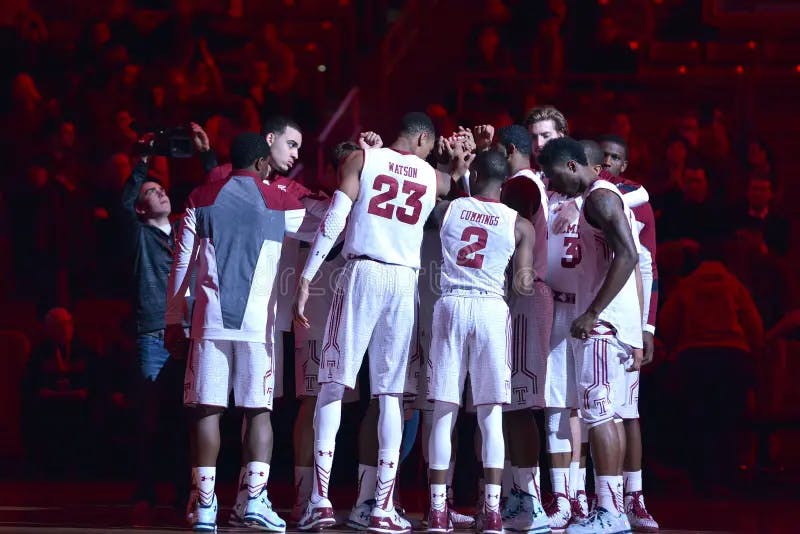
Three Tips for Maintaining Team Culture at the End of a Basketball Season
- By Grant Young
Maintaining and sustaining basketball team culture at the end of a season can be a challenging task, irrespective of a team’s performance. Several factors contribute to this difficulty:
1. Emotional Fatigue: Players and staff often experience burnout from the long season, leading to decreased motivation and focus on team cohesion.
2. Future Uncertainty: As the season wraps up, players may face uncertainty about their futures, which can distract them from team unity.
3. Reflecting on Performance: The end of the season often leads to introspection regarding successes and failures. Negative emotions can create tension and hinder trust among team members.
4. External Pressures: The scrutiny from fans, media, and organizational expectations can amplify stress. Players may feel pressured to perform individually rather than focusing on collective goals, which can undermine team culture.
5. Waning Team Morale: If the team has struggled throughout the season, morale can be low, making it challenging to foster positivity and a strong culture as the season concludes.
6. Ineffective Communication: As the season comes to an end, communication might suffer if players are preoccupied with their futures or disheartened by past performance, leading to misunderstandings and a lack of cohesion.
Navigating these challenges requires strong leadership and open communication to ensure that the team remains unified, regardless of how the season unfolded. Doing so becomes much easier when one has access to cultural cornerstones that past coaches have used with their teams to sustain morale at the end of the season.
We have pulled three tips on maintaining team culture from three high-level basketball coaches that you can use to finish your season strong.
Matt Doherty - Symbolism
Matt Doherty is a former American college basketball coach best known for his time as head coach of the University of North Carolina Tar Heels men's basketball team. Prior to accepting the head coaching position at UNC, he spent one season as head coach of the University of Notre Dame Fighting Irish men's basketball program. After leaving UNC, Doherty would go on to become head coach of the Florida Atlantic Owls and then the SMU Mustangs, where he was for seven seasons.
In his ‘Strategies of Effective Leadership’ clinic, Coach Doherty explains the value of having symbolism within a team culture and how that can help keep a team’s morale up regardless of on-court outcomes.
He explained that little things—whether handshakes, trophies, or anything else that might seem insignificant—could be given value through the symbolism they provide a team and used as a visual representation of their core values.
The item that Coach Doherty used was a stone which he wrote ‘RTC’ (Respect, Trust, and Commitment) on, which was an acronym for his three biggest core pillars when it came to team culture. From there, all of his players could sign this stone, and he used it as a contract that his players could be held accountable to uphold as the season progressed.
When a player breaks these core values, Coach Coherty could remind them of their signature on the stone, along with that of their teammates, and then have a visual representation that will drive his point home.
The key here is to keep the stone (or whatever symbol) you would like to use readily available and in the open. This will serve as a constant reminder of the values a team agreed upon at the start of a season and is therefore accountable to.
Bart Lundy - Having Your Own Language
Coach Bart Lundy is currently the head men’s basketball coach at the University of Wisconsin-Milwaukee, where he led the team to back-to-back 20-win seasons for the first time since 2004-05 and 2005-06. Coach Lundy is a former D1 Head Coach and current Head Coach of Queens University (NC). He was able to take over Queens University's Basketball Program and turn it into a nationally recognized powerhouse with multiple NCAA tournament appearances.
Coach Lundy’s ‘Blueprint to Creating Championship Culture’ clinic goes over every single aspect of the program that has an impact on team wins, including everyday rules a team should live by.
Coach Lundy spoke about having a specific set of words that are integral to each team and to the program as a whole, which can be employed both on the court and in the locker room to evoke a sense of cohesion and camaraderie among a team.
The language a coach uses (and the way they speak to their team) does a ton for promoting and sustaining a team's culture. If these words are used throughout a season, they can serve as pertinent reminders for a team that’s having lapses in concentration and accountability as the season nears its end.
Lynn Milligan - Understanding the Why
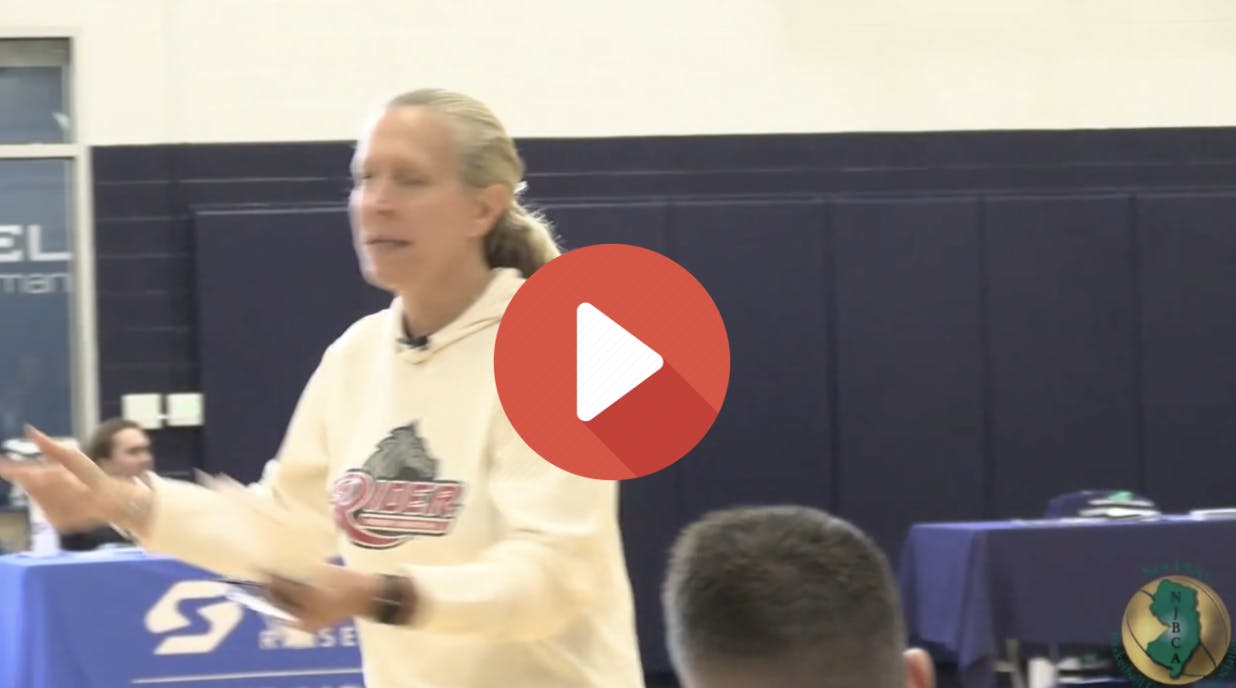
Lynn Donovan-Milligan enters her 18th season as the head women's basketball coach at Rider University in 2024-25. The Broncs won at least one game at the MAAC Tournament for the seventh time in the past eight seasons in 2023-24, defeating Iona in the opening round. Rider closed the 2022-23 season strong winning five of its final nine games, including an opening-round victory in the MAAC Tournament over Marist.
Coach Donovan-Milligan’s ‘Lynn Milligan - Creating Culture Through Practice’ clinic discusses the value of a coach knowing and understanding the ‘why’ behind everything that they do.
A coach knowing the why behind why their team does layup lines, why there’s a pregame huddle, why there’s a team dinner the night before games and communicating that why to their players will help create a team culture that’s rooted in understanding, which will allow teams to stick together regardless of how a season goes.

